It’s known around these parts as ‘Raincouver’ and yet us locals still complain about Vancouver weather.
With this Vancouver weather guide you’ll find out the best time to visit whether you’re skiing, beaching, or just want to find that holiday sweet spot.
Vancouver Weather By Month
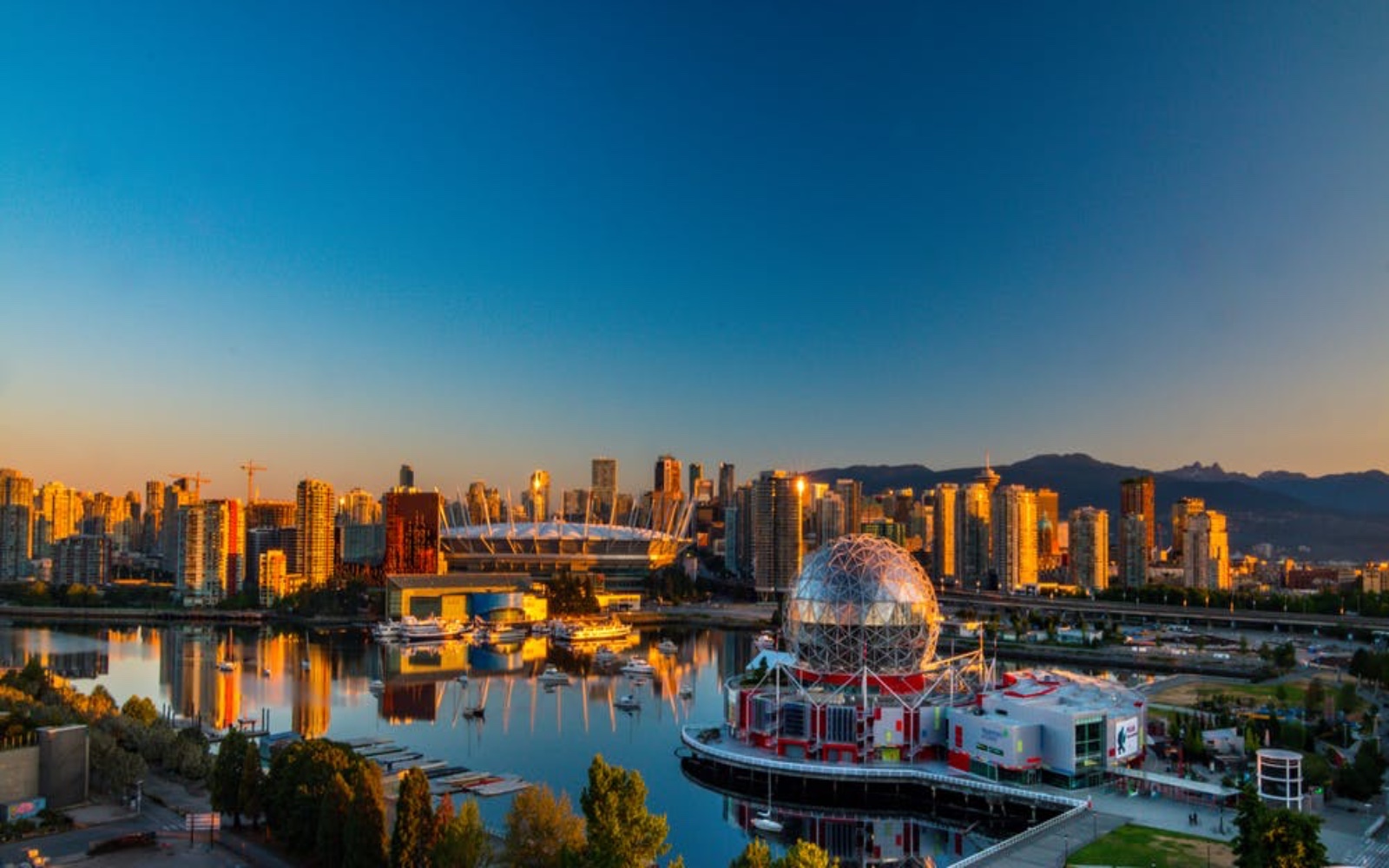
The truth is we’ve got a moderate oceanic climate that provides comfortable conditions virtually year round.
This makes it easy to visit Vancouver’s top sights regardless of what time of year you’re in town.
That said, it shouldn’t be mistaken for Florida.
As we mentioned in our post on things to know before visiting Vancouver, it tends to rain quite a bit though it’s a suitable year round destination that doesn’t have terribly cold Canadian winters.
So get Vancouver’s best hotels or Vancouver’s top hostels booked and start the vacation!
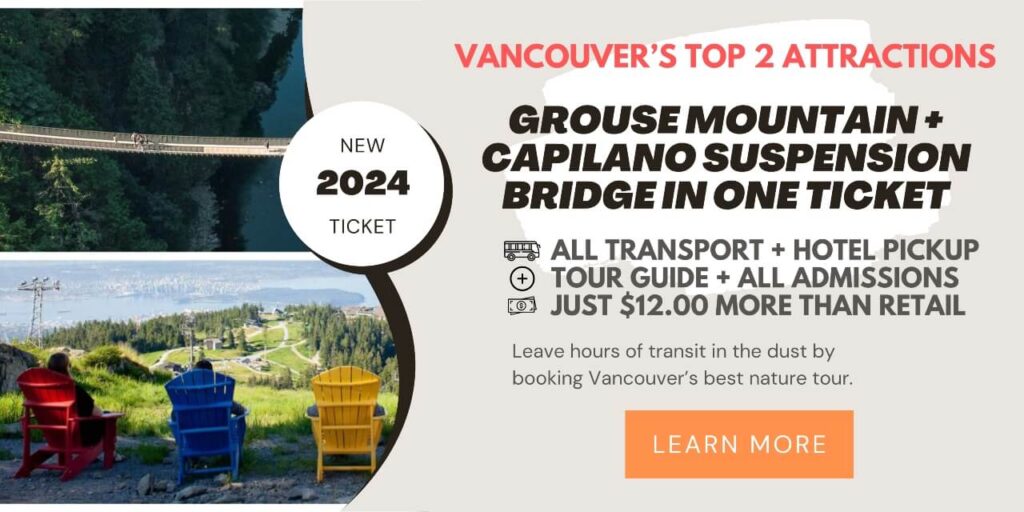
Vancouver Temperatures
Vancouver’s coastal location and mountainous terrain moderate the climate. This ensures that it’s neither searingly hot in Vancouver in summer nor mind-numbingly cold in the winter.
The city’s mild winters also allow many flowers to remain in bloom year round in places like Stanley Park and Van Dusen Garden.
Vancouver Precipitation
Unfortunately, the notorious “Raincity” reputation does tend to become more appropriate later in the year. As demonstrated in the graph below, rainfall increases significantly throughout the fall and winter months, particularly on the city’s North Shore.
But look on the bright side. This high-level of precipitation means skiers and snowboarders can enjoy Vancouver’s best ski resorts as little as 20 minutes from the downtown area.
Just remember that Vancouver itself receives very little snowfall. The majority of the snow is left for the local mountains, which are prone to receive large dumps during the onset of Winter Pacific storms.
Related: What is Vancouver Known For?
Vancouver Weather in January
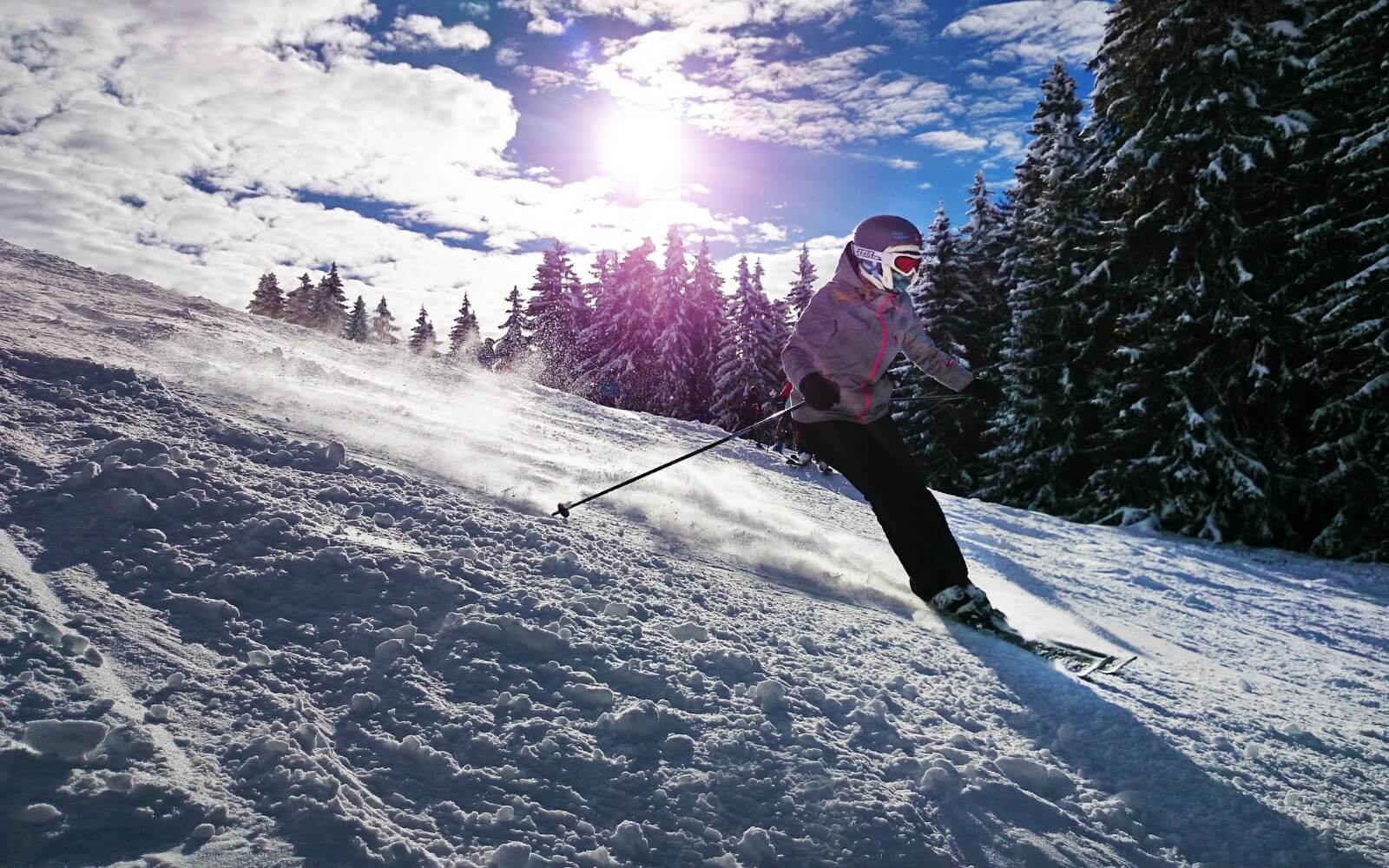
Average Temperatures (High 7°, Low 1°)
Though Vancouver has some of the mildest winters in Canada, it is still susceptible to Arctic-outflow winds that transport cold continental air in from the interior.
This can result in temperatures below zero for extended periods. Thankfully these occurrences are quite rare, typically occurring only 1-3 times per year.
While January in Vancouver is the coldest month of the year, it still remains quite comfortable relative to other Canadian cities. The snow dusted mountains are magical especially seen from the Vancouver Lookout.
Naturally it’s the best time of year for skiers and snowboarders.
Chance of Precipitation (51%)
Rainfall will be your number one problem in January with roughly half the days experiencing some rain. It’s not uncommon to encounter mixed precipitation (rain, snow and freezing rain) in the same day.
This is a great month for museums like Science World , the Maritime Museum, or the Vancouver Art Gallery.
Snow?
There’s just a 1% chance of encountering sustained snowfall in January, and it rarely hangs around long.
What to wear in January
- Winter jackets
- Dress in layers
- Waterproof footwear
- Umbrella
- Beanies/scarves/gloves
- Sweaters/hoodies
- Ski gear (if hitting the slopes)
Related: Cypress Mountain Ski Resort
Vancouver Weather in February
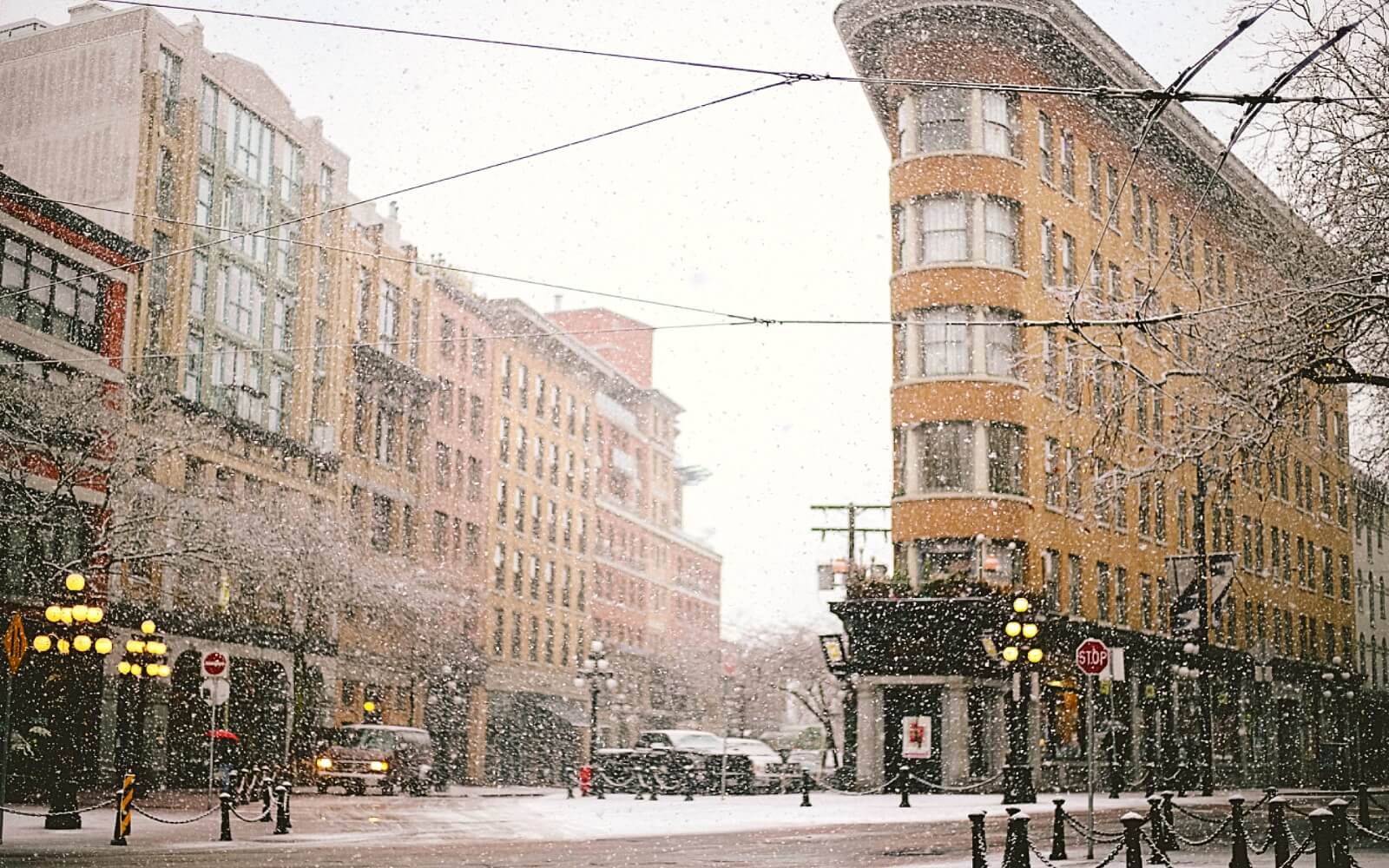
Average Temperatures (High 8°, Low 2°)
While average temperatures increase from January ever so slightly, the effects are not felt until later in the month. February is still undoubtedly wintertime in Vancouver.
Late February in Vancouver has been known to bring the onset of spring, so if you are lucky, you may be welcomed by double digit temperatures and the return of perennial flowers.
An early spring in Vancouver though is by no means a certainty. You should still be prepared for cold temperatures, particularly at night.
This is a great time to head up to Whistler to experience a world class ski resort.
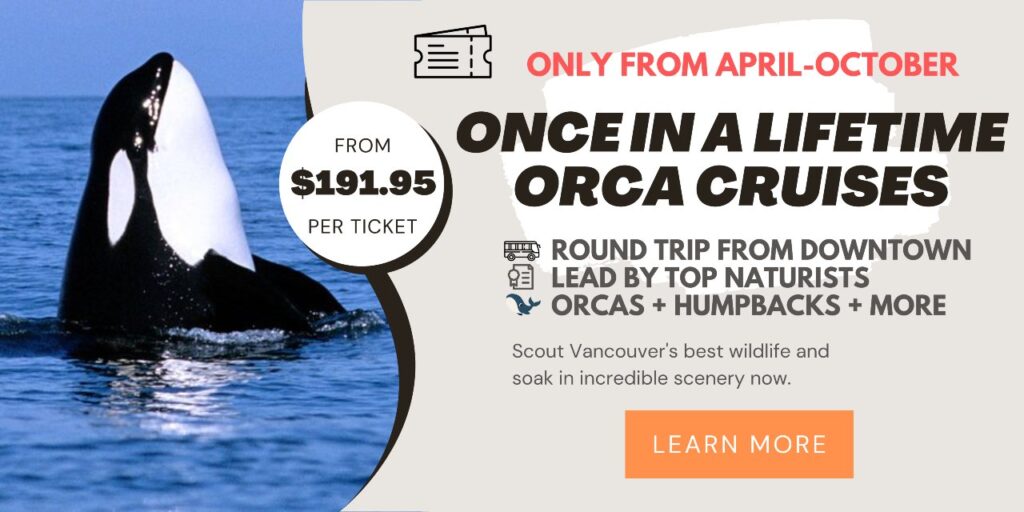
Chance of Precipitation (49%)
Visitors to Vancouver in February can still expect to encounter their fair share of precipitation, with around 16 days of rainfall on average.
Snowfall is rare.
What to wear in February
- Winter jackets
- Dress in layers
- Waterproof footwear
- Umbrella
- Beanie/scarf/gloves
- Sweaters/hoodies
- Ski gear (if hitting the slopes)
Vancouver Weather in March
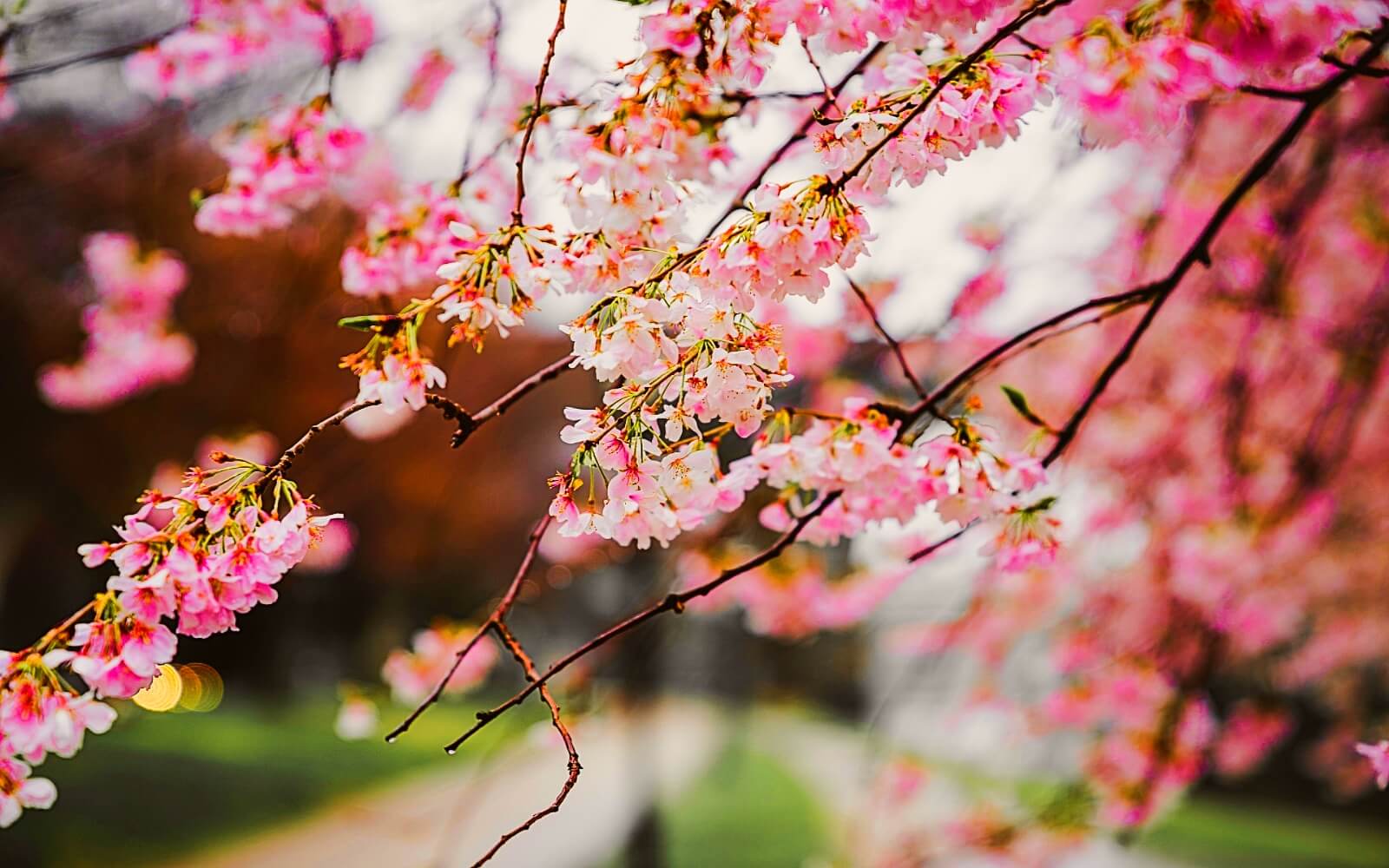
Average Temperatures (High 10°, Low 5°)
March brings the arrival of spring to Vancouver and it becomes much easier to get around the city with Vancouver public transit.
Daytime highs will often fall in the low double digits,
Nights are quite chilly though, so don’t forget warm jackets just yet!
March also welcomes the return of perennial flowers, and you can expect cherry blossoms to be in full bloom, accompanied by the spawning of herring in the Salish Sea (it always happens at exactly the same time, no one knows why!).
Chance of Precipitation (47%)
Despite the onset of Spring, March still remains quite wet in Vancouver. There is little change from February in regards to the chance of encountering precipitation.
However, you can take some comfort in the fact that it is typically too warm for snow, provided you are not in the Eastern suburbs or at a higher elevation.
What to wear in March
- Rain Jacket/Light Jacket
- Waterproof footwear
- Umbrella
- Sweaters/hoodies
- Ski gear (if hitting the slopes)
Vancouver Weather in April
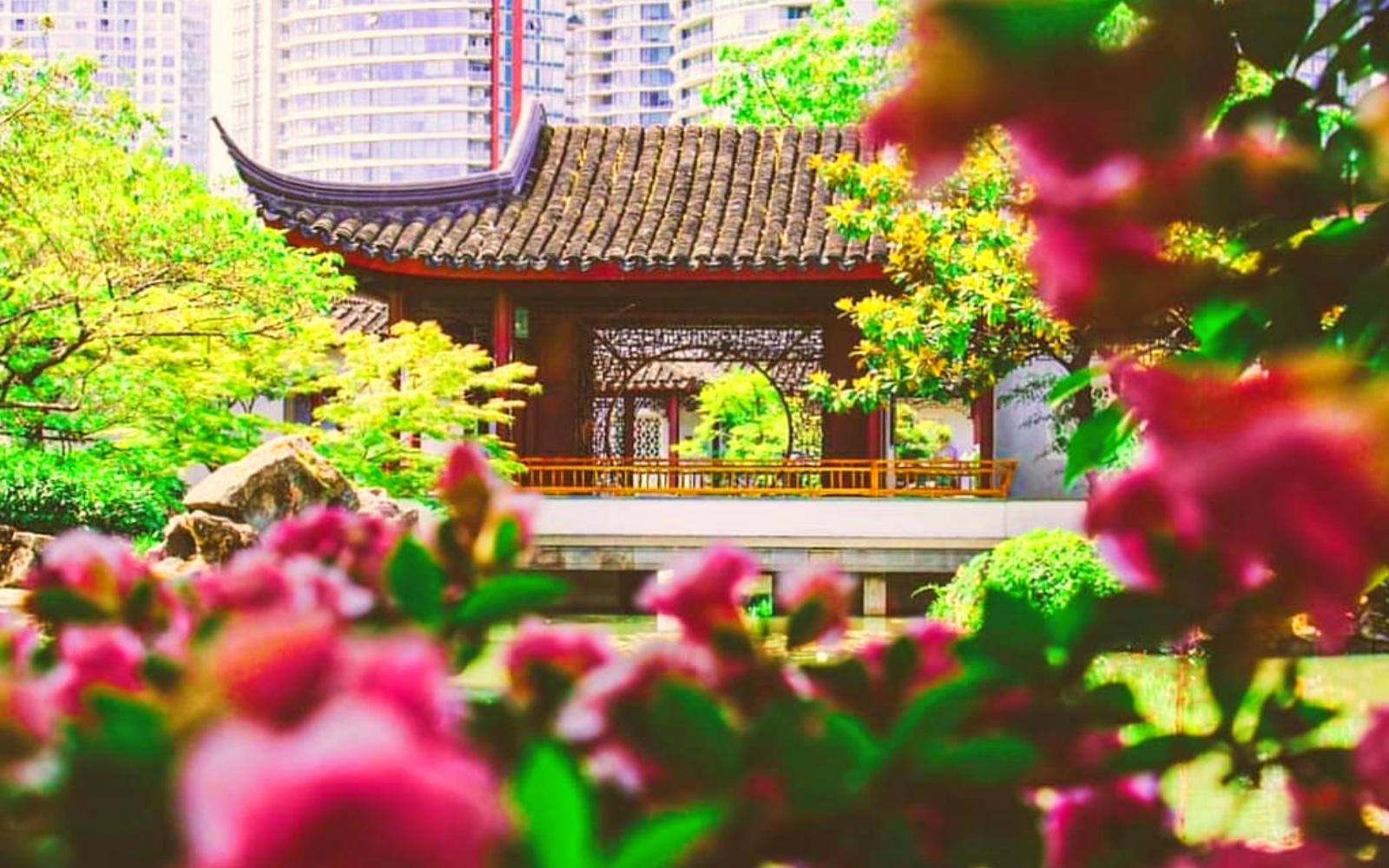
Average Temperatures (High 12°, Low 5°)
Temperatures continue to rise in Vancouver in April, though they can still only be categorized as mild at best. It will still be quite chilly at night so layering remains an important dressing strategy.
April is typically a month of transformation, meaning you can expect a vastly different experience depending on whether you visit at the beginning or at the end of the month.
We recommend you prepare for a little bit of everything, but outdoorsy activities like the epic Capilano Suspension Bridge are becoming the norm here.
Chance of Precipitation (38%)
April is usually the month that begins to drag on the consciousness of Vancouverites. While temperatures have begun to improve, the month is still at the heart of Vancouver’s rainy season.
However, you will notice quite a difference from the beginning of the month to the end, with a 45% of precipitation in early April, compared with just a 31% chance at the end.
What to wear in April
- Layers (thin layer on skin, intermediate layer, rain protection)
- Rain/light jacket
- Hoodies
- Waterproof gear
- Umbrella
- Ski gear (If heading to Whistler)
Vancouver Weather in May
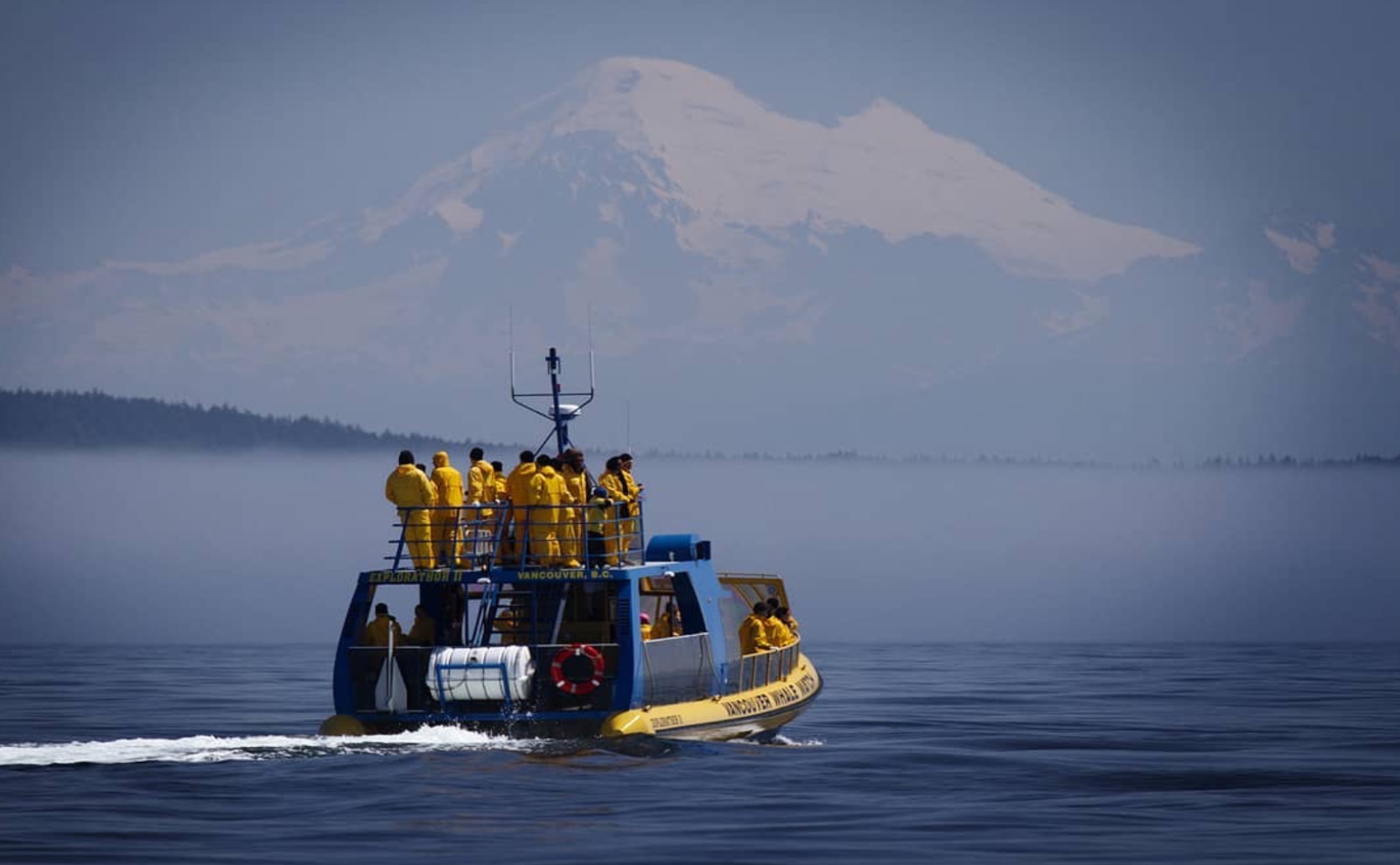
Average Temperatures (High 16°, Low 9°)
In May Vancouver finally begins to experience a significant increase in temperature, with a 16 degree average daily high.
There will again be a significant difference between the beginning and the end of the month.
While the weather still remains variable, by the end of May you will often begin to see temperatures rise into the low twenties and possibly higher further inland.
Just don’t expect any beach weather until the end of the month.
May’s improving weather will also usher in the start of camping season, the opening of the Grouse Grind at Grouse Mountain, and the restart of Vancouver’s best whale watching tours.
May is a great time of year to grab the Hop on Hop Off bus without the deluge of tourists you can expect in the summertime.
Chance of Precipitation (28%)
Along with the improving temperatures, May finally begins to signal the end of Vancouver’s rainy season.
While the chance of precipitation still remains fairly high at 28%, you can expect to see more clear skies towards the end of the month – so head to the HR Macmillan Space Centre to see the stars shine!
What to wear in May
- Layers (Be prepared for anything)
- Light Jacket/rain jacket
- Hiking gear
- Shorts/skirts (Towards the end of the month)
Vancouver Weather in June
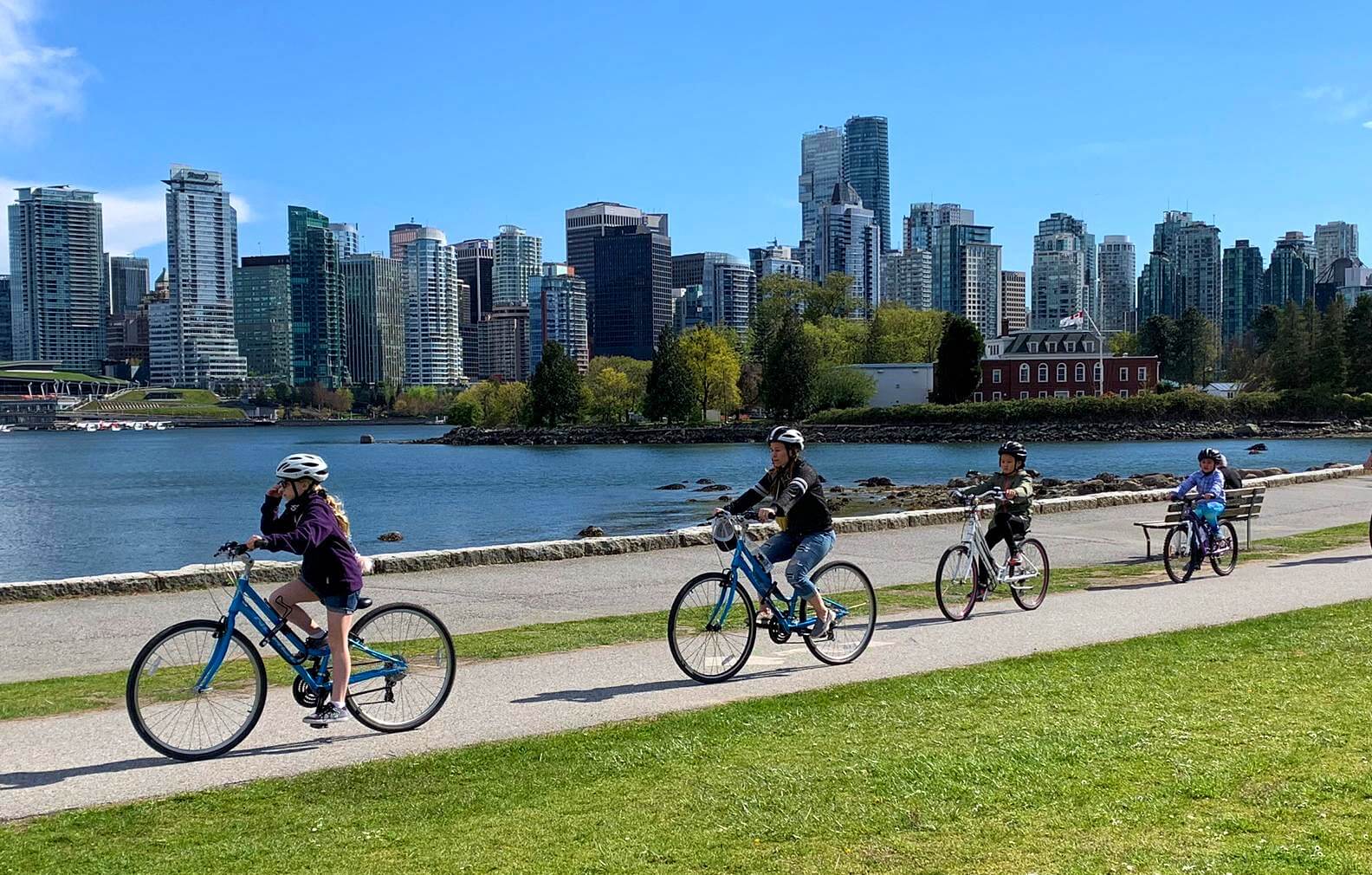
Average Temperatures (High 19°, Low 11°)
June in Vancouver is when it finally begins to feel like summer, with temperatures regularly reaching well into the twenties.
You can still anticipate the odd cold breeze, particularly near the water. However, most days are quite warm, ushering in patio season at Vancouver’s best bars.
Despite this fact, cool evenings mean you’ll still want to keep a light jacket, sweatshirt or shawl on hand.
The longest days of the year also usher in the beginning of Vancouver’s festival season, with a wide variety of events on offer throughout the month.
Some of Vancouver’s best festivals here include the Vancouver International Jazz Festival, The Bard on the Beach Shakespeare Festival and the Dragon Boat Festival.
Other cultural events include Italian Days on Commercial Drive, Philippine Days in North Vancouver and the Richmond Night Market near the River Rock Casino.
Chance of Precipitation (21%)
With the onset of summer the chance of encountering rainfall during your visit sees a significant decline from May. That said, it’s still 21%!
This is particularly the case early in the month, so don’t be surprised to see the odd sprinkle of rain.
What to wear in June
- Light Jacket/sweatshirt (for at night)
- T-shirts/shorts
- Long pants/skirts
- Sandals/swimwear/sunscreen
- Hiking gear
- Open and closed-toed shoes
Vancouver Weather in July

Average Temperatures (High 21°, Low 13°)
This is as good as it gets folks!
If you’re in Vancouver in July know that it’s the warmest and driest month of the year, with average temperatures rising well into the twenties. But it should still be quite comfortable, as temperatures rarely rise above 30 degrees.
However, a 5-10 degree difference between coastal areas and inland areas like Surrey, Abbotsford and Whistler is not uncommon. So it’s likely to be a lot hotter at places like the Sea to Sky Gondola.
Despite the fact that the city is surrounded by water, many visitors are still surprised to learn that Vancouver’s best beaches have some good swim spots.
This includes several right in the downtown core, such as English Bay Beach and Sunset Beach, as well as Stanley Park’s Second and Third Beaches .
If you don’t mind going a little further afield, you can travel to Kitsilano Beach, Jericho Beach and Wreck Beach – the largest nude beach in Canada.
This is where you’re most likely to find the Vancouver Planner crew with a BBQ and a case of beer!
Chances of Precipitation (11%)
July and August are far and away the driest months of the year in Vancouver. While historical averages suggest that you can expect around 6 days of rainfall and chance of precipitation of around 11%, recent years trend towards the drier side.
Unfortunately, drought-like conditions throughout British Columbia have made forest fires and water restrictions common place in recent years. In fact, in 2013 the entire month of July passed without any measurable rainfall at all!
July is as close as Vancouverites ever get to perfect weather, so enjoy it!
What to wear in July
- Light jacket/shawl for night time
- Shorts/skirts
- Sunglasses/hat/sandals
- Swimwear/sunscreen
- Hiking gear
- Open-toed shoes
Vancouver Weather in August
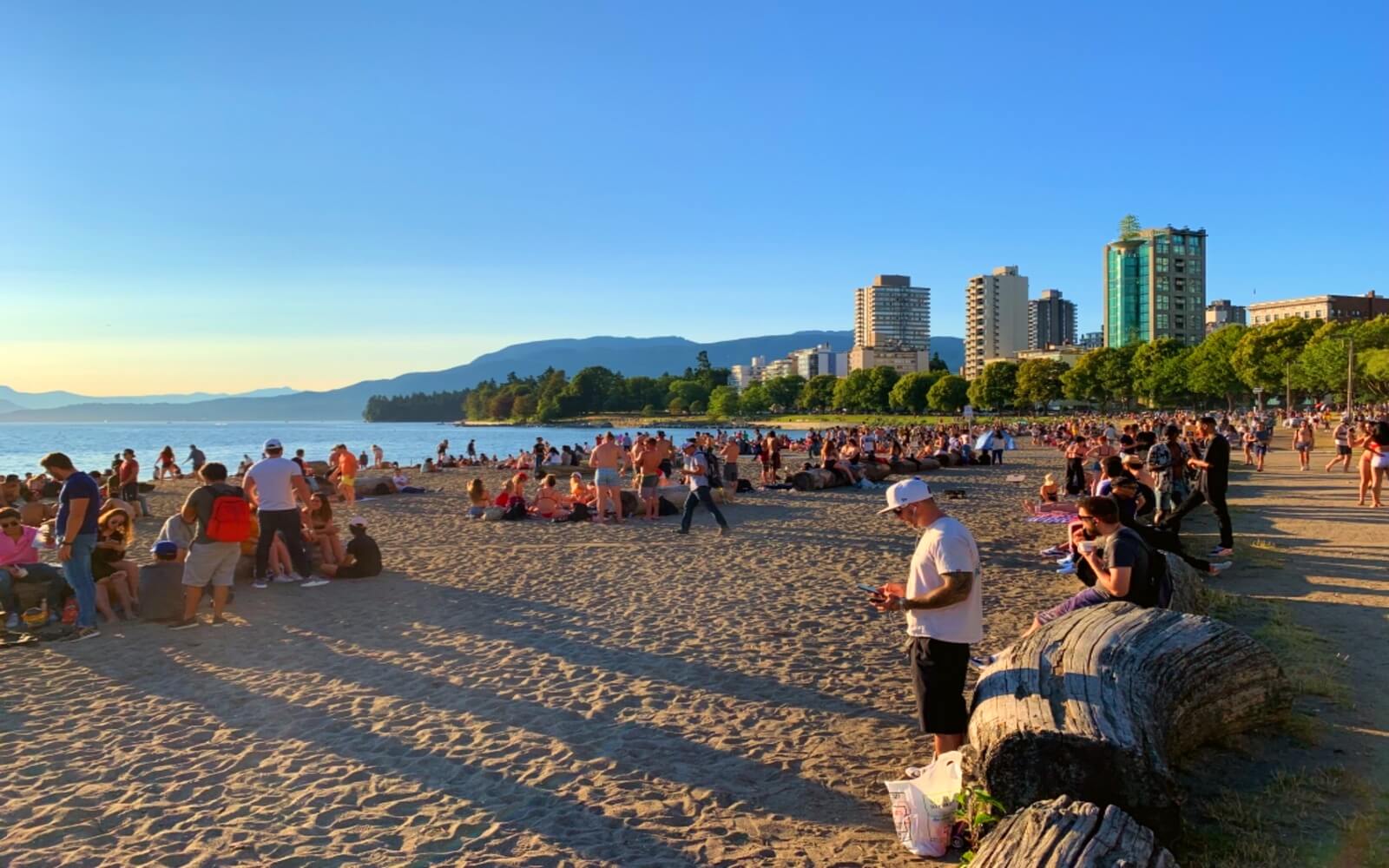
Average Temperatures (High 21°, Low 14°)
Vancouver in August offers a continuation of July’s reliably long, dry and warm summer days.
However, as days begin to diminish in length later in the month, temperatures can drop suddenly, making a light jacket or sweatshirt a valuable commodity.
The near perfect weather, coupled with Vancouver’s spectacular scenery, make the city a popular tourist destination for those escaping the oppressive heat and humidity in other parts of the continent.
The cruise ship terminal is also in full swing, with the bulk of it’s more than 800,000 passengers visiting in the summer months. This makes August among the busiest times of the year to visit.
For those willing to brace the crowds, the weather is perfect for a variety of outdoor activities and Vancouver’s best festivals are in full swing.
Highlights include the famous Pacific National Exhibition (PNE) in East Vancouver, the Vancouver Pride Parade and Festival and the Honda Celebration of Light: the world’s longest running off-shore firework festival.
Chance of Precipitation (13%)
August receives slightly more rain than July, yet remains exceedingly dry by Vancouver standards. In fact, Vancouver has one of the driest Augusts of any major Canadian city.
Traditionally the end of August has brought cooling temperatures and a slight increase in precipitation, with a 17% chance of precipitation at the end of the month, versus an 11% chance at the beginning.
However, recent trends have leaned towards longer and drier summers. So do as Vancouverites do and enjoy it, because we know summer won’t last forever.
What to wear in August
- Light jacket/shawl for night time
- Shorts/skirts
- Sunglasses/hat/sandals
- Swimwear/sunscreen
- Hiking gear
- Open-toed shoes
Vancouver Weather in September
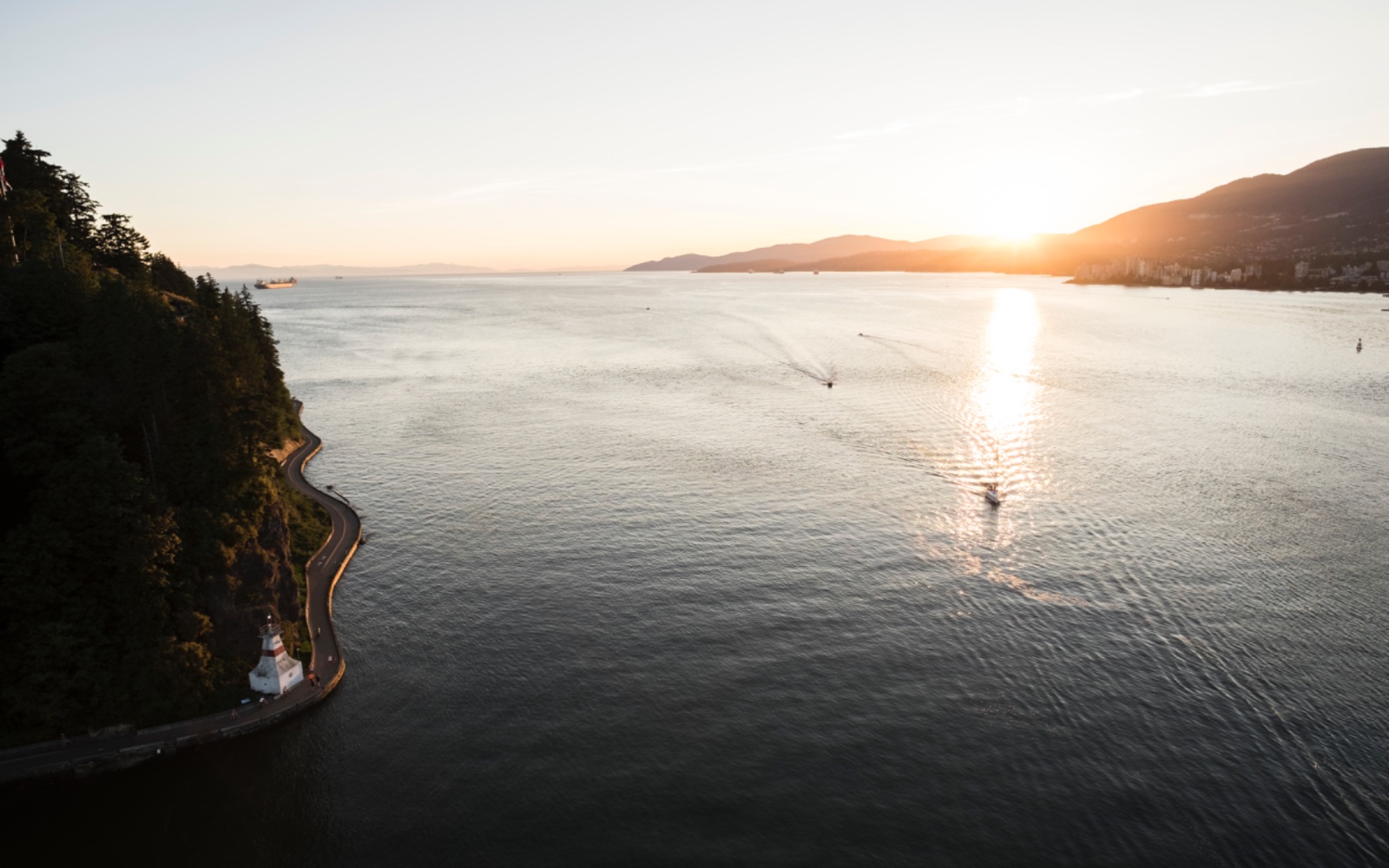
Average Temperatures (High 18°, Low 11°)
With shortening days, declining temperatures and increasing precipitation, Vancouver in September means the oncoming fall rainy season.
It is not all doom and gloom though, far from it. September remains one of Vancouver’s warmest and driest months.
Perhaps most importantly it offers a perfect opportunity for visitors to hit all the main attractions without the bustling crowds of July and August.
With temperatures still in the low-to-mid twenties, outdoor recreational opportunities and beach days are still well within the realm of possibility.
Infact, the recent trend of warmer, drier and longer Summers has forced the City of Vancouver to extend the season at it’s outdoor pools late into the month.
However, you’ll likely find the weather to be a tale of two months. Summer like conditions at the start of the month quickly reverting to more unpredictable Fall like conditions towards the end.
With that being said, every last day counts, so enjoy the remaining days of summer. The Labour Day weekend in early September brings an abrupt end to the Summer Festival Season, with the closing of the PNE.
Similarly, the arrival of fall will bring an end to a variety of outdoor recreational opportunities. So get outside and enjoy the Seawall, Vancouver Aquarium, or go for a hike.
Chance of Precipitation (23%)
The chance of precipitation increases significantly as the month progresses, ranging from 18% at the start, to 28% as October approaches.
Though the weather may become more unpredictable, September is still quite dry by Vancouver standards, making it a great time to visit.
Just be prepared for slightly more varied conditions than July and August.
What to wear in September
- Light Jacket/rain jacket
- Light sweater/sweatshirt
- Layers (be prepared for anything)
- Long pants
- Shorts/sandals/swimwear (for earlier in the month)
- Hiking gear
- Open and closed-toe shoes
Related: Best Vancouver Sightseeing Tours
Vancouver Weather in October
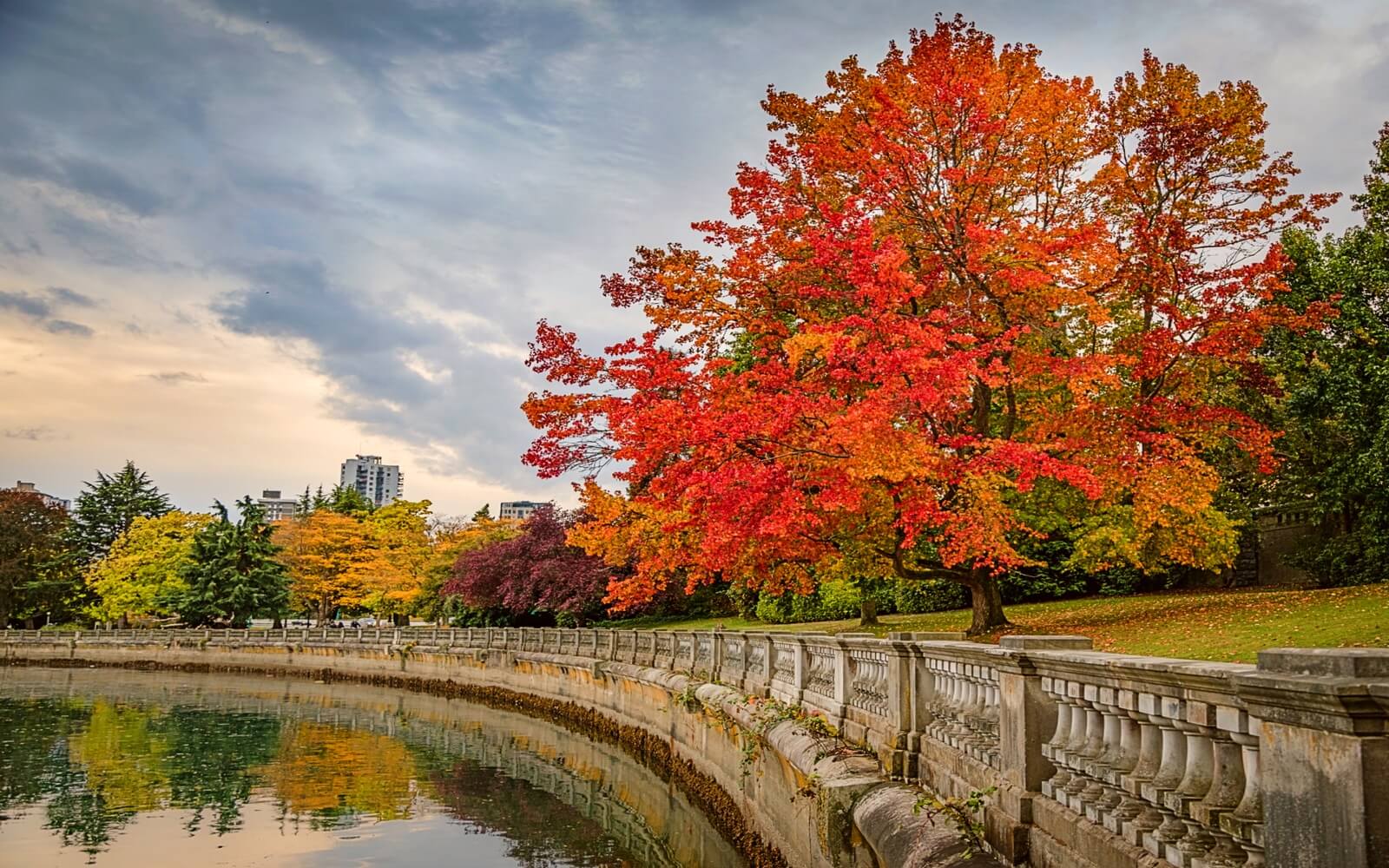
Average Temperatures (High 13°, Low 7°)
Vancouver in October beckons the arrival of fall weather, with a sharp drop in temperatures.
While warm stretches with clear skies remain a possibility, particularly early in the month, days spent at the beach will be a thing of the past.
Visitors should anticipate a significant difference between the early part of the month and the end, as the weather gradually becomes greyer, darker and wetter as October progresses.
In spite of this fact, October can still be a great time to visit Vancouver, provided you don’t mind the odd sprinkle of rain.
The arrival of Fall colours in the foliage of the city’s top gardens like Sun Yat Sen Gardens provides for postcard perfect views at every turn.
Chance of Precipitation (42%)
It can’t be denied that October signals the return of the rainy season to Vancouver. If you’re looking for sun maybe it’s best to head over to Victoria.
There is a significant increase in the probability of precipitation, from a 30% chance at the start of the month, to a 54% chance on Halloween.
So visitors may take some comfort in the fact that most of the rainfall occurs towards the end of the month. This typically provides for some beautiful clear autumn weather to enjoy before the rainy season truly arrives.
What to wear in October
- Rain jacket
- Umbrella
- Waterproof footwear
- Sweaters/sweatshirts
- Layers
- Hiking gear
Vancouver Weather in November
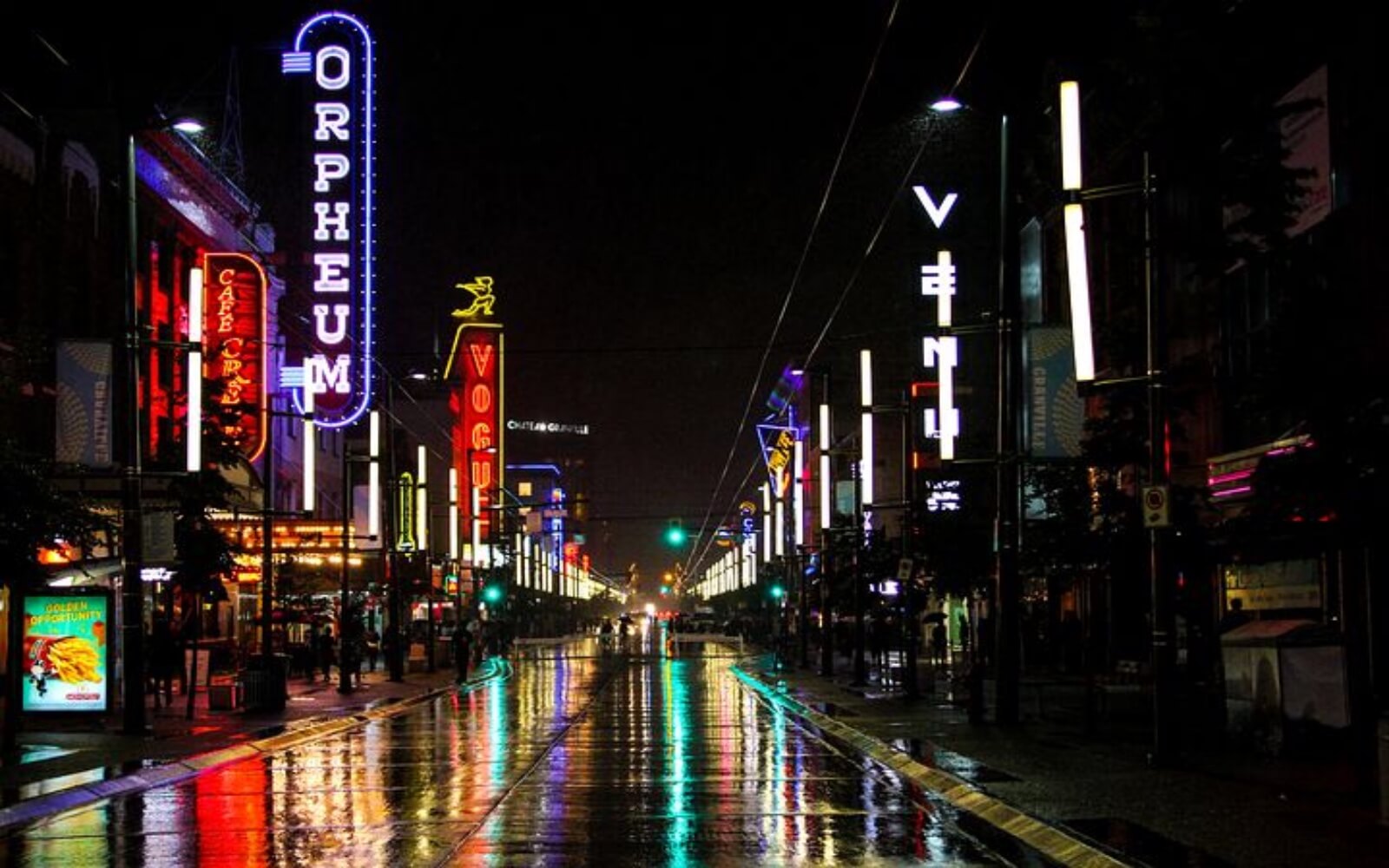
Average Temperatures (High 8°, Low 3°)
Though mild by Canadian standards, November brings cooler weather to the Vancouver area, with average daily highs dipping in to the single digits.
Though snowfall is quite rare, night time temperatures begin to flirt with the freezing point, so travellers should be prepared to bring warm clothes in the event they encounter a cold spell.
The main concern will be staying dry, as November is the wettest month of Vancouver’s long rainy season. I would stay inside at the best museums in Vancouver like the Museum of Anthropology or the Vancouver Police Museum.
While not ideal at sea level, the cooling temperatures and increasing precipitation usually bring the opening of the ski season on the local mountains and Whistler in the later part of November.
Chance of Precipitation (60%)
There is no way to sugar coat it, November is the wettest month of the year.
With the chance of precipitation remaining steady at around 60% throughout the month, and an average accumulation of 200mm, you are virtually certain to encounter rainfall if you visit Vancouver in November.
Be sure to pack accordingly.
What to wear in November
- Rain jacket
- Umbrella
- Waterproof footwear
- Sweaters/sweatshirts
- Layers
- Winter jacket
- Gloves/scarves/beanies
- Ski gear
Vancouver Weather in December
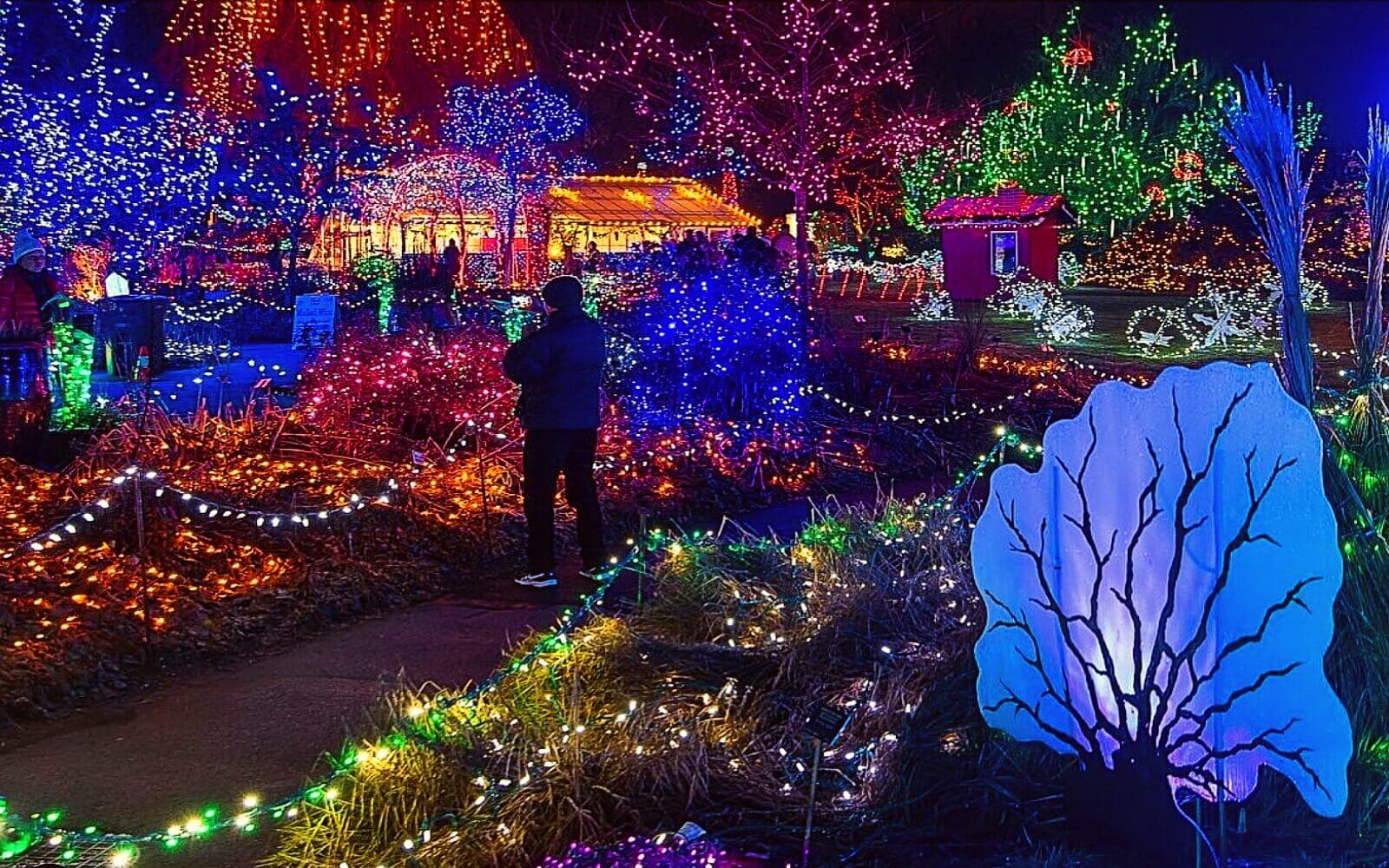
Average Temperatures (High 6°, Low 1°)
With an average daily temperature of 4 degrees, December in Vancouver is tied with January for the coldest month of the year.
While exceptionally mild relative to other Canadian cities, Vancouver is susceptible to Arctic-outflow winds which transport cold continental air in from the interior.
This can lead to sustained periods with temperatures hovering at or the below the freezing mark. Thankfully this usually only occurs 1-3 times per year, with daytime highs usually well above freezing.
The holiday season is a fantastic time of year to visit the Vancouver area, with it’s relatively mild weather (again, by Canadian standards!), innumerable holiday decorations and a multitude of holiday related festivities for the whole family.
December is also a fantastic time to go skiing at Grouse Mountain, or take a trip to Whistler.
There are also tons of things to do in Vancouver over Christmas.
Chance of Precipitation (55%)
While the weather is getting colder, rain will still be your main inconvenience, as December falls at the heart of Vancouver’s rainy season.
With accumulated rainfall of 160 mm, December is the second wettest month of the year, narrowly missing out to November.
It also offers the highest probability of snowfall of any month of the year, though most of the white stuff will be confined to higher elevations in the Eastern suburbs and the North Shore Mountains.
On average, Vancouver receives just 3 days of snowfall in December, and has a less than 10% chance of having a white Christmas.
The main take away should be to ensure that you bring warm, dry and layer-able clothing so that you are not taken by surprise, and can enjoy your visit to the fullest.
What to wear in December
- Rain jacket
- Umbrella
- Waterproof footwear
- Sweaters/sweatshirts
- Layers
- Winter jacket
- Gloves/scarves/beanies
- Ski gear
Weather in Vancouver FAQ
What is the weather like in Vancouver?
Vancouver possesses a moderate oceanic climate that is neither searingly hot in the Summer, nor mind numbingly cold in the Winter.
The climate is comparable with other coastal metropolises such as London, Amsterdam or San Francisco.
How much rain does Vancouver get?
Vancouver receives some form of rainfall 161 days per year, with the majority coming in the rainy season between October and April.
What are Summers like in Vancouver?
Vancouver is one of Canada’s driest cities during the Summer, often going weeks without any measurable rainfall.
Temperatures are typically quite comfortable, falling in the low to mid twenties, though they can rise into the thirties inland and in the Eastern suburbs.
How much snow does Vancouver get?
Snow is somewhat uncommon in Vancouver relative to other Canadian and Eastern American cities, with an average of only 8.7 days per year of snowfall over 0.2 cm.
When encountered it is typically quite wet and doesn’t hang around long.
However, snow is much more common in areas of Greater Vancouver that are at higher elevation, such as Burnaby, West and North Vancouver and Coquitlam.
When is the best time to visit Vancouver?
Vancouver receives its best weather between May and late September, making these months the best time to visit if you’d like to avoid the rain.
Still Need Vancouver Weather Advice?
That’s it for my Vancouver weather post.
But it doesn’t have to end there – that’s why I’m encouraging you to fire away with any Vancouver questions in the comments below.
We’d also appreciate a follow on our Vancouver Planner Facebook page for up to date info, photos, and more!
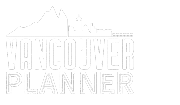
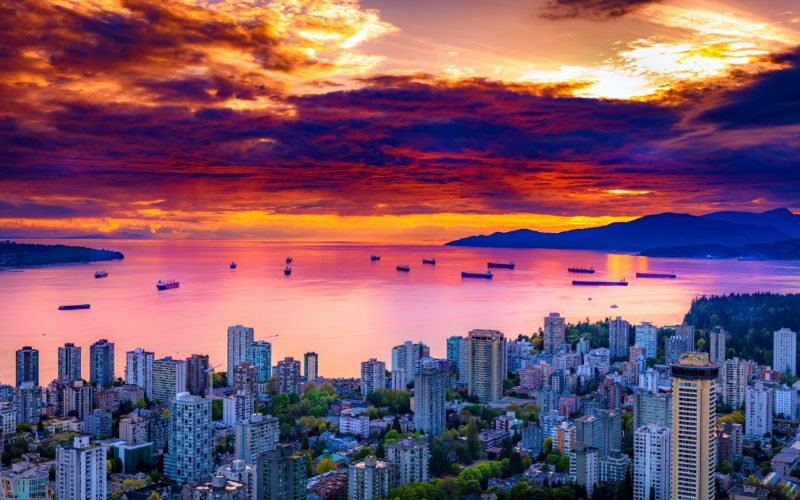
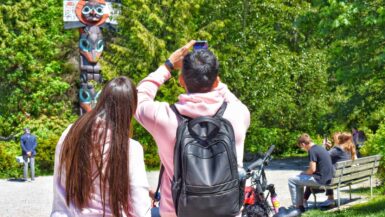
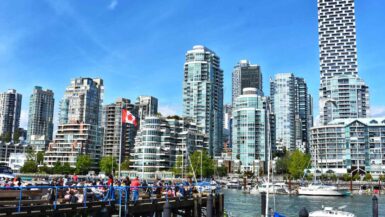
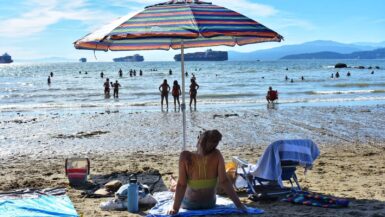
Leave a reply